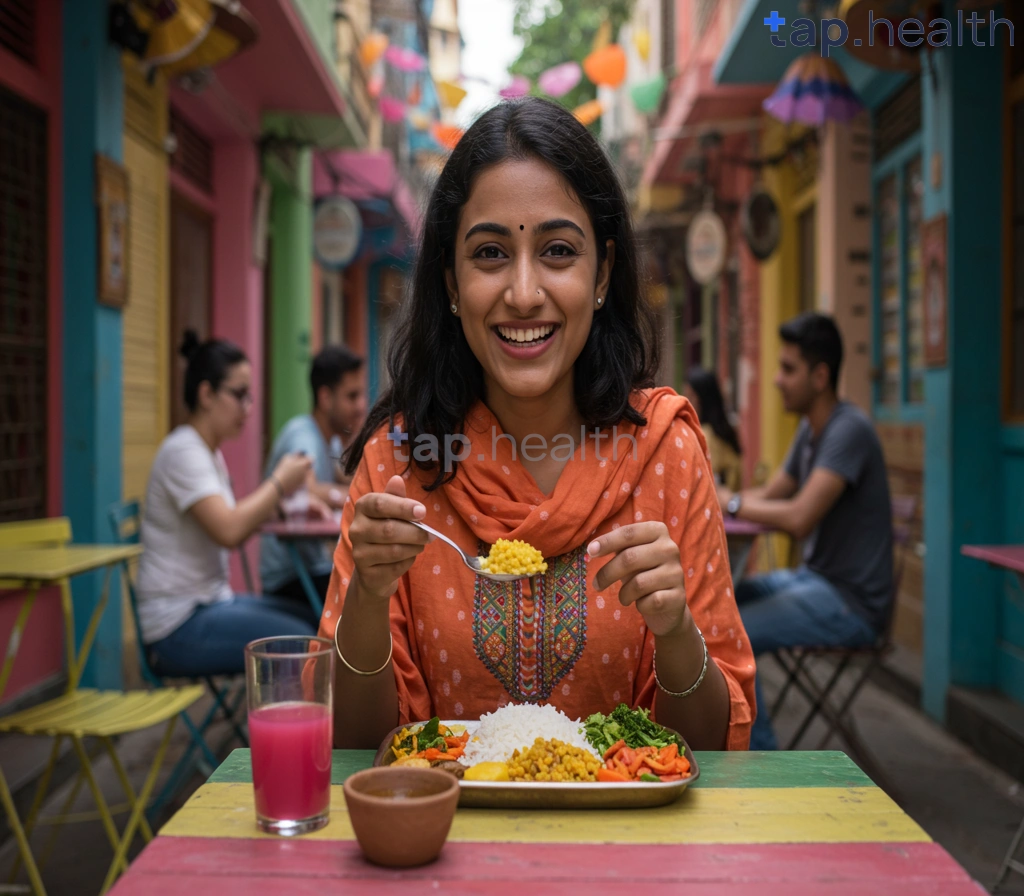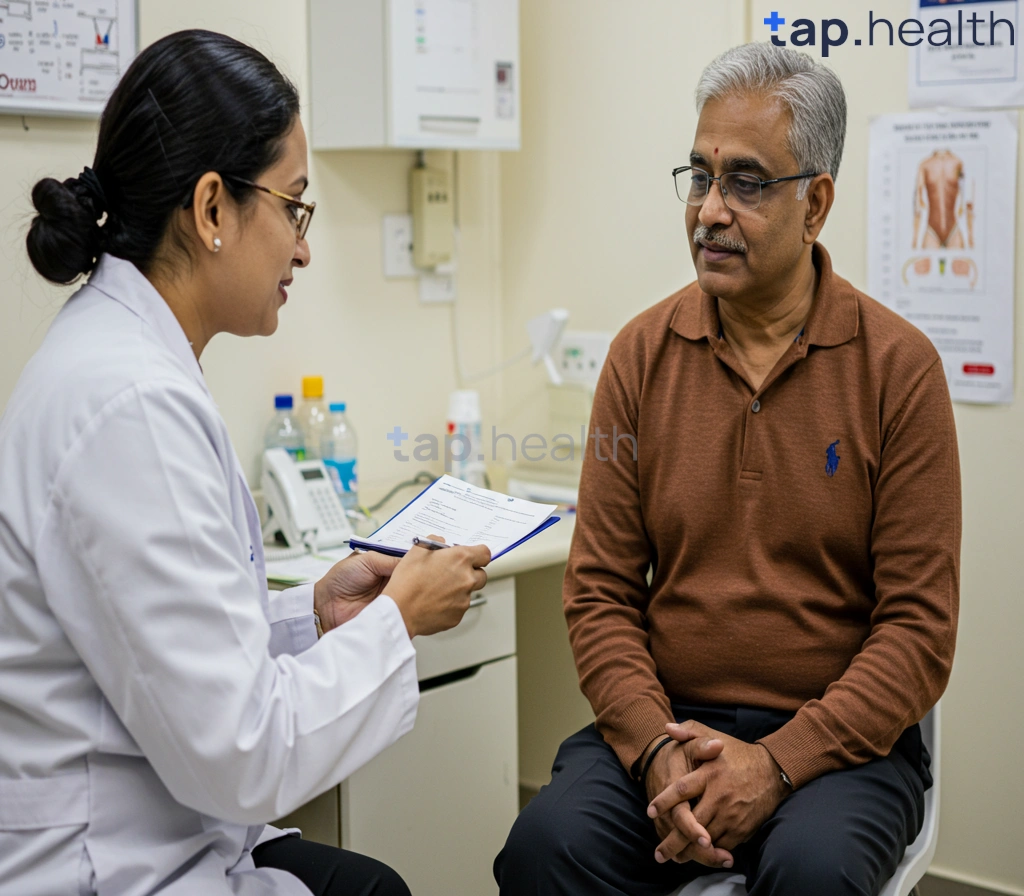Table of Contents
- Vegan Diets & Diabetes: A Digestive Deep Dive
- Plant-Based Meals: How They Impact Blood Sugar & Digestion
- Understanding Digestion on a Vegan Diabetic Diet
- Guide to Vegan Digestion: Tips for Diabetics
- Improve Digestion with a Plant-Based Diabetic Diet
- Frequently Asked Questions
- References
Managing diabetes requires careful attention to diet, and for many, exploring plant-based options is a compelling choice. This leads us to a crucial question: how do Vegan Diets & Diabetes truly interact? Understanding the impact of vegan meals on digestion is key to successful blood sugar control and overall well-being. This blog post will delve into the specifics, examining the benefits and challenges of a vegan diet for individuals with diabetes, exploring the digestive processes involved, and providing practical tips for navigating this lifestyle change. Let’s uncover the truth behind the connection between plant-based eating and effective diabetes management.
Vegan Diets & Diabetes: A Digestive Deep Dive
Understanding the Gut-Diabetes Connection in Tropical Climates
Diabetes significantly impacts digestion, often leading to complications like gastroparesis (delayed stomach emptying). This is further exacerbated by the high prevalence of certain digestive issues in Indian and tropical countries. A well-planned vegan diet, however, can offer significant digestive benefits for individuals managing diabetes. The abundance of fiber in plant-based foods promotes healthy gut bacteria, improving digestion and potentially mitigating some diabetic complications. Fiber’s role in regulating blood sugar levels is particularly crucial, helping prevent spikes and crashes that can negatively impact digestion.
The Role of Plant-Based Foods in Digestive Health
Many tropical fruits and vegetables, staples in Indian and other tropical diets, are rich in fiber and prebiotics, fostering a thriving gut microbiome. This is vital because a healthy gut is essential for nutrient absorption and overall well-being, especially for those with diabetes. Conversely, processed foods, often high in saturated fats and low in fiber, can worsen digestive problems and negatively affect blood sugar control. Choosing whole, unprocessed vegan options is key to optimizing digestive health and blood sugar management. Remember to consider regional variations; incorporating locally sourced fruits and vegetables ensures maximum nutritional benefit and seasonal availability. If you’re considering a vegan lifestyle, our guide on How to Start a Vegan Diet Plan: A Step-by-Step Guide can be very helpful.
Managing Diabetes Through Dietary Choices
Switching to a vegan diet requires careful planning to ensure adequate intake of all essential nutrients. This is particularly important given that diabetes increases the risk of kidney disease, with nearly 30% developing diabetic nephropathy. Therefore, a well-balanced vegan diet should prioritize kidney-friendly foods and limit high-potassium options. Consulting a registered dietitian or a healthcare professional experienced in managing diabetes in tropical climates is highly recommended. They can help you create a personalized meal plan catering to your specific needs and regional food availability, ensuring optimal digestive health and diabetes management. This personalized approach is crucial for successful long-term management. It’s also important to understand that adopting a vegetarian diet doesn’t eliminate the risk of diabetes; learn more about the risks in our article, Can a Vegetarian Get Diabetes?
Plant-Based Meals: How They Impact Blood Sugar & Digestion
Managing blood sugar levels is crucial for individuals with diabetes or prediabetes, particularly in regions like India and other tropical countries where dietary habits significantly influence health outcomes. A well-planned vegan diet can be incredibly beneficial, but understanding its impact on both blood sugar and digestion is key. Maintaining blood glucose levels less than 140 mg/dL is considered normal, while levels between 140–199 mg/dL indicate prediabetes, and 200 mg/dL or higher suggests diabetes.
Impact on Blood Sugar
Plant-based meals, rich in fiber and low in saturated fat, generally lead to slower glucose absorption. This prevents the rapid spikes in blood sugar often seen after consuming refined carbohydrates. Fruits, vegetables, legumes, and whole grains, staples in many Indian and tropical diets, are packed with fiber, helping regulate blood sugar levels more effectively than processed foods. However, it’s crucial to be mindful of portion sizes and carbohydrate content, even with healthy plant-based options. Careful meal planning is essential for consistent blood sugar control. For more information on whether a plant-based diet can reverse diabetes, read our article: Can a Plant-Based Diet Reverse Diabetes?
Impact on Digestion
The high fiber content in a vegan diet promotes healthy digestion. Fiber acts as a prebiotic, feeding beneficial gut bacteria which in turn contribute to improved digestion and overall gut health. This is particularly important in tropical climates where digestive issues are more prevalent. Incorporating a diverse range of plant-based foods, including fermented foods like idli and dosa (popular in South India), further supports gut microbiome diversity and optimal digestive function. However, some individuals may experience initial digestive discomfort as their bodies adjust to increased fiber intake. Gradually increasing fiber consumption is recommended. To learn more about the role of fermented foods in regulating blood glucose, check out: Discover How Fermented Foods Help Regulate Blood Glucose Levels
Actionable Tips for Indian & Tropical Regions
Focus on incorporating locally sourced fruits, vegetables, and legumes into your meals. Prioritize whole grains like brown rice and millets over refined grains. Experiment with traditional Indian recipes that naturally emphasize plant-based ingredients. Remember to stay hydrated, as adequate water intake aids digestion. Consult a doctor or registered dietitian for personalized dietary advice tailored to your specific needs and health condition. Taking control of your diet can significantly improve your health and well-being.
Understanding Digestion on a Vegan Diabetic Diet
Managing diabetes in tropical and Indian climates presents unique challenges, especially when adopting a vegan diet. Understanding how a plant-based approach affects digestion is crucial for successful blood sugar control. The key lies in mindful carbohydrate intake. While a general guideline suggests 45–60 grams of carbs per meal for many with diabetes, individual needs vary significantly based on factors like activity level, medication, and overall health. This is especially relevant in warmer climates where hydration and metabolic rates can be affected.
Fiber’s Role in Blood Sugar Regulation
High-fiber vegan diets, rich in fruits, vegetables, and legumes common in Indian and tropical cuisine, can significantly improve digestion and blood sugar control. Fiber slows down glucose absorption, preventing sharp spikes in blood sugar. However, careful planning is essential. Some high-fiber foods, while beneficial, might cause digestive discomfort initially. It’s important to gradually increase fiber intake and stay adequately hydrated. Focusing on easily digestible options like cooked vegetables and well-soaked legumes can be particularly helpful.
Managing Carbohydrate Intake
The type of carbohydrate is as crucial as the quantity. Refined carbohydrates found in processed foods should be limited, even in vegan diets. Instead, prioritize complex carbohydrates like whole grains (brown rice, oats) and starchy vegetables (sweet potatoes, plantains), which offer sustained energy and better digestion. Portion control remains vital; even healthy carbs contribute to overall carbohydrate intake. For more specific guidance on portion sizes and carbohydrate choices, you might find Diet Chart for Diabetic Patients to Control Diabetes helpful.
Regional Considerations
Traditional Indian and tropical cuisine offers a wealth of naturally vegan options, but it’s important to be aware of hidden sugars and fats. Many dishes rely on coconut milk, which is high in fat, and sweetening agents like jaggery, which impact blood sugar. Careful meal planning, mindful portioning, and awareness of regional variations in cooking styles are key to maintaining optimal blood sugar levels. Consult with a nutritionist or certified diabetes educator for personalized guidance tailored to your specific needs and dietary preferences. Understanding how processed foods impact blood sugar is also important; for example, you might want to check out Is Lean Cuisine Good for Diabetics?
Guide to Vegan Digestion: Tips for Diabetics
Managing diabetes, especially in tropical climates like those found across India and other regions, requires careful attention to diet. A significant portion of the global diabetic population, 61% of whom are aged between 20-64 years according to the International Diabetes Federation, are of working age. This highlights the need for practical dietary advice that supports both health and daily life. A well-planned vegan diet can be highly beneficial, but understanding its impact on digestion is crucial.
Improving Vegan Digestion for Diabetes Management
Many commonly consumed vegan foods in India and tropical countries, like lentils, beans, and various vegetables, are rich in fiber. While beneficial for blood sugar control, this high fiber content can sometimes cause digestive discomfort if not managed correctly. Start by introducing high-fiber foods gradually to allow your gut microbiome to adapt. Pairing high-fiber meals with plenty of water is essential for preventing constipation, a common concern among those following a vegan diet. For more specific guidance on incorporating lentils into your diet, check out Can Diabetics Eat Lentils? A Complete Guide.
Addressing Specific Digestive Concerns
Bloating and gas are other potential challenges. Fermented foods like yogurt (ensure it’s vegan and unsweetened) and kimchi can help improve gut health and reduce these issues. Choosing a variety of plant-based protein sources, such as tofu, tempeh, and various dals, ensures adequate protein intake without overloading the digestive system. Pay attention to how different foods affect your body and adjust your diet accordingly. Remember, a registered dietitian can provide personalized advice tailored to your specific needs and regional dietary habits. For a sample meal plan, you might find the 7 Day Indian Vegetarian Diet Chart for Diabetic Patients helpful.
Regional Considerations and Next Steps
In regions with hot climates, staying hydrated is paramount. Include plenty of water-rich fruits and vegetables in your diet. Consult with a healthcare professional or a nutritionist specializing in diabetes and vegan diets for further guidance. Taking these steps towards optimizing your vegan diet will not only improve your digestion but also contribute to better overall diabetes management. Don’t hesitate to seek expert advice – your health journey is a priority!
Improve Digestion with a Plant-Based Diabetic Diet
Understanding the Gut-Diabetes Connection
Managing diabetes, especially Type 2, often involves addressing insulin resistance, a condition affecting over 80% of those diagnosed. A plant-based diet can significantly improve digestion and contribute to better blood sugar control, thereby impacting insulin sensitivity. This is because many plant foods are rich in fiber, which promotes healthy gut bacteria and improves digestion. In Indian and tropical contexts, incorporating readily available fruits, vegetables, and legumes is crucial.
Fiber-Rich Foods for Better Digestion
High-fiber diets are essential for managing diabetes in tropical climates. Think of incorporating regional favorites like moong dal (mung beans), rajma (kidney beans), and a variety of leafy greens abundant in these regions. These foods not only provide essential nutrients but also support healthy gut function, aiding in digestion and nutrient absorption. Fruits like mangoes, papaya, and bananas, while containing natural sugars, should be consumed in moderation as part of a balanced approach. For those looking to manage weight alongside their diabetes management, consider exploring our guide on How to Lose Weight with Diabetes Diet Plan.
Actionable Tips for a Plant-Based Diabetic Diet
Prioritize whole grains like brown rice and millets, common staples in many Indian and tropical countries. Limit processed foods, refined sugars, and unhealthy fats that can negatively impact digestion and blood sugar levels. Stay hydrated by drinking plenty of water throughout the day. Consult a doctor or registered dietitian before making significant dietary changes, especially if you have pre-existing health conditions. They can help you create a personalized plan tailored to your specific needs and regional food availability. A healthy gut is key to managing diabetes effectively – embrace the abundance of plant-based options available in your region for a happier, healthier you. And remember to plan ahead for special occasions, check out our tips on Creating Diabetes-Friendly Dishes for the Holidays for some inspiration.
Frequently Asked Questions on Vegan Diets & Diabetes
Q1. What are the main digestive benefits of a well-planned vegan diet for people with diabetes, especially in tropical climates?
A well-planned vegan diet can significantly improve digestion and blood sugar control in individuals with diabetes, particularly in tropical climates. High-fiber plant-based foods foster healthy gut bacteria, leading to better digestion and blood sugar regulation.
Q2. How can I ensure I get all the necessary nutrients on a vegan diet while managing diabetes?
Careful planning is crucial. Prioritize whole, unprocessed foods, including locally sourced fruits and vegetables. Focus on complex carbohydrates and limit refined ones. Consulting a registered dietitian experienced in diabetes management is highly recommended for personalized guidance.
Q3. What are some potential digestive challenges I might face when transitioning to a vegan diet, and how can I mitigate them?
Increased fiber intake can initially cause digestive discomfort. To mitigate this, gradually increase your fiber intake and ensure adequate hydration. Listen to your body and adjust your diet as needed.
Q4. Are there specific carbohydrate considerations for managing diabetes on a vegan diet?
Yes, managing carbohydrate intake is vital. Limit refined carbohydrates and focus on complex carbohydrates found in whole grains, legumes, and vegetables. Consulting a healthcare professional will help you determine your appropriate carbohydrate needs.
Q5. Is it important to consult a healthcare professional before starting a vegan diet if I have diabetes?
Yes, it’s highly recommended. A registered dietitian or healthcare professional experienced in managing diabetes, particularly in tropical climates, can provide personalized dietary advice tailored to your specific needs and the regional food availability.
References
- A Practical Guide to Integrated Type 2 Diabetes Care: https://www.hse.ie/eng/services/list/2/primarycare/east-coast-diabetes-service/management-of-type-2-diabetes/diabetes-and-pregnancy/icgp-guide-to-integrated-type-2.pdf
- What is Diabetes: https://www.medschool.lsuhsc.edu/genetics/docs/DIABETES.pdf




